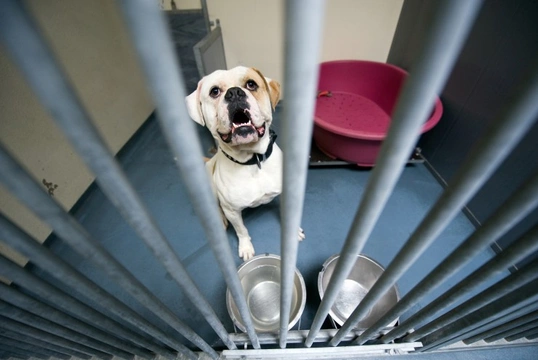
Seven top tips for kennel boarding a dog that suffers from separation anxiety
If your dog suffers from separation anxiety, this can make life more challenging and complicated for both you and your dog, as well as more stressful! A dog that is acutely unhappy with being left alone may well get on just fine when in a boarding kennels, as there are other dogs around and plenty to keep their minds occupied, including attention from the kennel staff, new friends to make, and varied walks and periods of play.
However, some dogs with separation anxiety find kennel boarding to be a hugely stressful experience, and will pine and remain unhappy for the majority of the time that they are left. In this article, we will share seven tops tips for making life easier for a dog with separation anxiety when they are boarded.
Check out alternatives
The first thing to do when it comes to considering boarding a dog with separation anxiety is to see if there are other alternative options that you can look into instead. This could include working on ways that you could explore to be able to take your dog with you wherever you are going, possibly hiring a pet sitter to care for your dog at home and stay with them constantly, or asking familiar friends to board your dog instead.
Start working on your dog’s issues in advance
Life for a dog with separation anxiety can often be made easier in general, as well as for their upcoming kennel stay, if you take proactive steps to work on the root of the problem. Check out this article for some ideas on where to start, and make sure you start working with your dog well in advance of their proposed stay, not leaving things until the last minute, as working on issues such as separation anxiety takes time, patience and repetition.
Ensure that the kennel staff are appraised of the issue
When boarding your dog in a commercial kennels, the kennel staff should take some time to find out more about your dog, their likes and dislikes, and their general temperament before your dog checks in. Spend some time talking in depth to the kennel staff about your dog’s problem, how it manifests and ways in which it can be made easier for them, and work on a protocol for how the staff can help to make your dog’s stay more pleasant and less stressful.
Take your dog along to the kennels a few times first
Don’t let your dog’s first time at the boarding kennels be the day that you leave them there for their stay, as this is likely to be very hard on your dog. Once your dog’s stay is booked and the kennel staff are aware of your dog’s problem, make arrangements with them to take your dog along to the kennels a few times for a visit, so that the environment is not totally unfamiliar to them the first day that they go to stay.
Try to arrange for your dog to meet the staff that will be caring for them and spend a little time with them, and if possible, try to board your dog for a day or a few hours before their main stay commences.
Take some familiar items with your dog
When your dog does go along for their stay, try to make the transition as comfortable for them as possible by providing some familiar and reassuring items from home. Their bed, bowls and favourite toys can all help your dog to settle in more quickly, and provide a sense of reassurance and continuity for them too.
Ensure that your dog will be kept busy
A dog that is kept busy and active is less likely to pine and feel stressed than a dog that is left alone for the majority of their stay, so choose your kennel carefully, selecting one that makes sure to provide plenty of activities and socialisation time for the dogs, and which has a good staff to dog ratio.
If your dog will get to spend plenty of time playing with other dogs, going for walks and receiving attention, they are much more likely to enjoy their stay and have less time to dwell on the fact that you have left them.
Don’t leave your dog for too long
When boarding your dog away from you for the first time, try to ensure that their stay is not a protracted one, as this can make things harder for your dog. A couple of nights’ stay or anything up to a week should be fine, but try to avoid boarding your dog for longer than this the first time, and gradually work up to longer stays in the future once your dog is more comfortable with the boarding kennels and you have assessed how well they got on.



